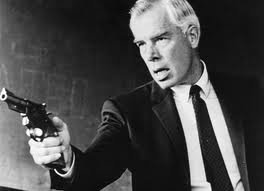
A treadmill is a device generally used for walking, running, or climbing while staying in the same place. Treadmills were introduced before the development of powered machines to harness the power of animals or humans to do work, often a type of mill operated by a person or animal treading the steps of a treadwheel to grind grain. In later times, treadmills were used as punishment devices for people sentenced to hard labor in prisons. The terms treadmill and treadwheel were used interchangeably for the power and punishment mechanisms.
More recently, treadmills have instead been used as exercise machines for running or walking in one place. Rather than the user powering a mill, the device provides a moving platform with a wide conveyor belt driven by an electric motor or a flywheel. The belt moves to the rear, requiring the user to walk or run at a speed matching the belt. The rate at which the belt moves is the rate of walking or running. Thus, the speed of running may be controlled and measured. The more expensive, heavy-duty versions are motor-driven (usually by an electric motor). The simpler, lighter, and less expensive versions passively resist the motion, moving only when walkers push the belt with their feet. The latter are known as manual treadmills.
Treadmills continue to be the biggest selling exercise equipment category by a large margin. As a result, the treadmill industry has hundreds of manufacturers throughout the world.
History
William Staub, a mechanical engineer, developed the first consumer treadmill for home use. Staub developed his treadmill after reading the 1968 book, Aerobics by Kenneth H. Cooper. Cooper's book noted that individuals who ran for eight minutes four to five times a week would be in better physical condition. Staub noticed that there were no affordable household treadmills at the time and decided to develop one for his own use during the late 1960s. He called his first treadmill the PaceMaster 600. Once finished, Staub sent his prototype treadmill to Cooper, who found the machine's first customers, including sellers of fitness equipment.
Staub began producing the first home treadmills at his plant in Clifton, New Jersey, before moving production to Little Falls, New Jersey.
Treadmills as power sources originated in antiquity. These ancient machines had three major types of design. The first was a horizontal bar jutting out of a vertical shaft. It rotated around a vertical axis, driven by an ox or other animal walking in a circle and pushing the bar. Humans were also used to power these. The second design was a vertical wheel, a treadwheel, that was powered by climbing in place instead of walking in circles. This is similar to what we know today as the hamster wheel. The third design also required climbing but used a sloped, moving platform instead.
Treadmills as muscle powered engines originated roughly 4000 years ago. Their primary use was to lift buckets of water. This same technology was later adapted to create rotary grain mills and the treadwheel crane. It was also used to pump water and power dough-kneading machines and bellows.
If you want to read a lot more, go here: https://en.wikipedia.org/wiki/Treadmill
Bring home the bacon and be the top tomato in the kitchen when you make these novel bite-size BLT Bites as super appetizers or snacks!
- 12 -14 cherry tomatoes
- 3/4 cup mayonnaise
- 1/2 cup finely shredded cheddar cheese
- 1/3 cup sliced green onions
- 1/4 cup bacon bits
- Cut off a thin slice off of each tomato top. Scoop out and discard seeds.
- In a small bowl, combine remaining ingredients. Spoon into tomatoes. Refrigerate for several hours.
The International Dairy Foods Association states that mint chocolate chip is the 10th most popular flavor of ice cream.
HOW TO OBSERVE
1/4 cup butter or margarine, softened
3-1/2 cups powdered sugar
1 teaspoon mint extract
Green food coloring












